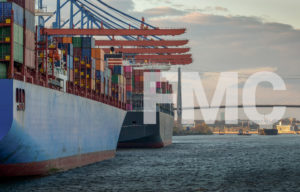News & Insights
BIS Proposes New Export Controls On Certain Automated Peptide Synthesizers
On April 20, 2023, the Commerce Department’s Bureau of Industry and Security (“BIS”) published a Proposed Rule for the imposition of export controls on certain automated peptide synthesizers typically used in biotechnology research and development activities. BIS proposes to treat such equipment as emerging and foundational technologies that are essential to U.S. national security under Section 1758 of the Export Control Reform Act of 2018 (“ECRA” at 50 U.S.C. 4801–4852). See 88 Federal Register 24341 (April 20, 2023). BIS previously published an Advanced Notice of Proposed Rulemaking in September 2022 identifying automated peptide synthesizers as potential Section 1758 technologies. See 83 FR 58201 (November 19, 2018).
Peptides and polypeptides are polymeric chains of amino acids linked together by peptide bonds. In the Proposed Rule, BIS noted that in the last few decades, peptide synthesis technology and equipment have increased the speed of production and the length of peptide products, yielding peptides and proteins greater than 100 amino acids in length. Most protein toxins controlled in Export Control Classification Number (“ECCN”) 1C351 on the Commerce Control List (“CCL”) of the Export Administration Regulations (“EAR”) are over 100 amino acids in length and have an average length of 300 amino acids, with the notable exception of conotoxins which can range between 10–100 amino acids in length.
In the Proposed Rule, BIS seeks public comments on its intent to revise ECCN 2B352 and place new export controls on certain equipment capable of use in handling biological materials. New paragraph k would be added to ECCN 2B352 to cover:
k. Peptide synthesizers that are:
k.1. Partly or entirely automated;
k.2. Capable of generating continuous peptide sequences greater than 75 amino acids; or,
k.3. Capable of producing 100mg of peptide at 75% or greater purity in a single run.
BIS licenses would be required for the export, reexport and in-country transfer of such synthesizers for antiterrorism reasons (AT Column 1 on the Commerce Country Chart) and for chemical and biological reasons (CB Column 2 on the Commerce Country Chart). Deemed export or reexport licenses may also be required in order to allow non-US persons in the United States (or third country nationals in foreign countries) to access the synthesizers’ associated source code and technologies. Goods, software and technology controlled for antiterrorism reasons under AT Column 1 of the Commerce Country Chart require a BIS license for countries subject to US embargoes and economic sanctions (i.e., Cuba, Iran, North Korea, Syria, Crimea and DNR & LNR regions of Ukraine. Similarly, goods, software and technology controlled for chemical and biological reasons under CB Column 2 of the Commerce Country Chart require a BIS license for all countries except for Australia Group members, which are identified in Country Group A:3 in Supplement No. 1 to Part 740 of the EAR.
Companies operating in the biotechnology sector should review their products, identify any that may be impacted by the Proposed Rule, and consider submitting public comments to BIS. Public comments are due no later than May 22, 2023.
Please contact Melissa Proctor (melissa@millerproctorlaw.com) should you have any questions about the BIS Proposed Rule or other international trade issues.


